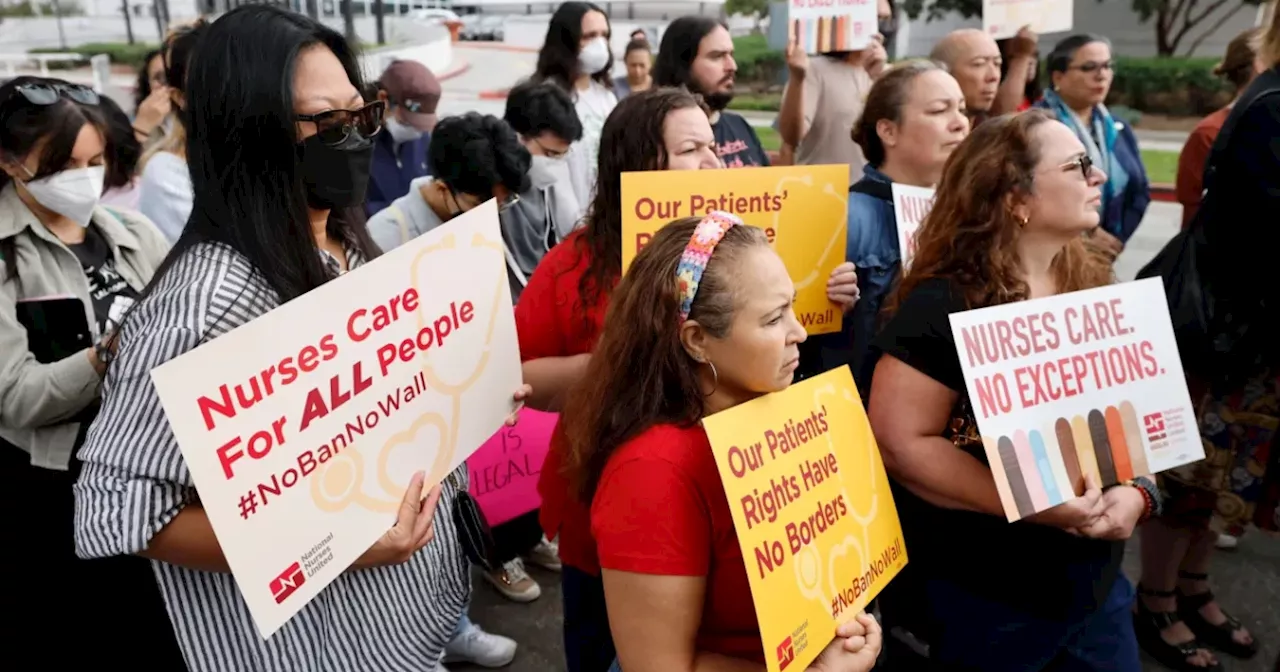Demonstrations erupted outside Glendale Memorial Hospital in California following the treatment of Milagro Solis-Portillo, a Salvadoran woman detained by U.S. Immigration and Customs Enforcement (ICE). The incident raised significant concerns about the treatment of patients under federal custody, particularly regarding their rights to privacy and medical care.
Solis-Portillo was brought to the hospital after suffering a medical emergency while in ICE custody. Over a span of two weeks, ICE contractors monitored her movements in the hospital lobby around the clock. According to her attorney, Ming Tanigawa-Lau, this included a transfer to Anaheim Global Medical Center against medical advice, where agents remained in her hospital room, potentially infringing on her right to confidential communication with healthcare providers.
Legal experts assert that patients under detention have specific rights. Genovese, a supervising attorney and clinical teaching fellow at Georgetown Law, emphasized that law enforcement must respect constitutional protections, allowing patients the opportunity to speak privately with medical providers and legal counsel. “ICE should be stationed outside of the room or outside of earshot during any communication between the patient and their doctor or medical provider,” Genovese stated.
This practice reflects a broader trend of federal authority exerting influence in healthcare settings, which has led to rising tension among advocates for immigrant rights. The California Nurses Association reported increased anxiety among nurses and patients witnessing immigration agents within the hospital’s premises. Sandy Reding, president of the Association, remarked that the presence of armed agents in healthcare environments fundamentally alters the sanctity of hospitals, which were once seen as safe havens.
The Los Angeles County Board of Supervisors is set to vote on November 18, 2023, on policies aimed at enhancing protections for detainees in county-operated health facilities. Proposed measures include limiting ICE’s ability to obscure patients’ identities, allowing patients to consent to the release of information to family and legal representatives, and ensuring that immigration agents vacate rooms during confidential conversations.
In response to the scrutiny surrounding these practices, Tricia McLaughlin, assistant secretary for public affairs at the Department of Homeland Security (DHS), defended ICE operations. McLaughlin claimed that the agency prioritizes humane treatment for those in custody and that comprehensive medical care is provided from the moment individuals enter ICE custody.
Despite these assurances, concerns remain about the operational protocols surrounding medical care for detainees. Critics argue that many of the guidelines regarding patient privacy are not enforceable, with hospitals often deferring to law enforcement’s judgment about the necessity for constant monitoring of detained patients.
The controversy surrounding Solis-Portillo’s treatment highlights a critical intersection of immigration enforcement and healthcare rights, prompting calls for reform. The case has not only raised awareness about the challenges faced by detained individuals in securing their legal and medical rights but has also catalyzed broader discussions about the role of law enforcement within healthcare facilities.
As the Los Angeles County Board prepares to address these issues, advocates hope that policy changes will better protect the rights of patients in similar situations. For Solis-Portillo, the stress of navigating the complexities of both her medical needs and immigration status led her to ultimately self-deport to El Salvador. Her attorney expressed relief that increased awareness around these issues may lead to meaningful changes in the treatment of detained patients in the future.
